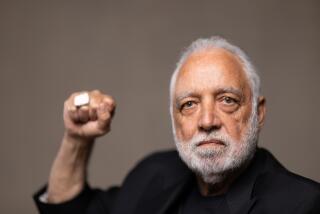He Practiced What He Preached
- Share via
Eugene Carson Blake gave vital, inspired leadership to the struggles for Christian unity and social justice. The world has yet to realize, in either great movement, all the goals that he helped to set--a measure in itself of his vision and his reach.
He led the struggle for integration and civil rights in California when he came to to the state in 1940 as pastor of the Pasadena Presbyterian Church and found that city’s swimming pools and other public recreation facilities segregated. He was arrested resisting racial barriers in a Baltimore park as he broadened his ministry as stated clerk, the chief executive of his denomination, and as president of the National Council of Churches. And he carried his commitment to Christian unity to the world as the general secretary of the World Council of Churches, which embraces the vast majority of Protestant and Orthodox Christian churches.
His ministry stirred controversy--a fact that neither discouraged nor deterred him, for he saw it as consistent with the actions of the founder of the religion that he followed. So he dared a vision that made many uncomfortable--preaching the futility of disunity among the churches, championing the struggle against colonialism abroad as he had argued the importance of equal rights at home, and carrying his mission for unity beyond the Protestant and Orthodox denominations to the Vatican, arranging the first visit of a Pope to World Council headquarters in Geneva. But when, in retirement, he sought election as moderator of his denomination in the United States, he lost in a disappointment that may have measured someof the growing resistance that has slowed the search for unity and diverted some from the kind of activism that had left no doubt that Blake practiced until his death what he preached.
More to Read
Sign up for Essential California
The most important California stories and recommendations in your inbox every morning.
You may occasionally receive promotional content from the Los Angeles Times.










